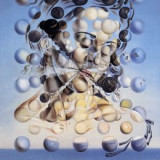How To Write A Great Poem (A Five Steps Process).
-
Robert Gardiner
9 years agoHow To Write A Great Poem (A Five Steps Process).
First Step: Have a Great Poem In You (Whether it be by Being a Talented Writer or by Having Something Powerful/Captivating to Say).
Secondly: Realize Your Goal, Objective, In Writing This Poem & Let That Be Your Guide
Third: Begin Writing (Construct a Draft)
Fourth: Read/Review What You Wrote
Step Five: Tweak That Draft (Make Changes Til It Flows, Read, & Feels Right and Accomplishes Your Objective).
If You Follow This Process & Employ These Steps, You can Write A Great Poem, No Matter The Form or Style Chosen. -
Robert Gardiner
9 years ago^^ GB, sometimes you write by creating a title/subject and working from that. Sometimes you write from a basic idea and create a poem and then choose the title after reading it, to see what works best.
-
GB
9 years agoI like your thread very much, reminds me of old useful threads I used to see in these forums ~sigh
Here are few of my own thoughts about writing good titles leading to good poems:
- It shouldn't be long: short title are elegant and catchy, while long titles are usually boring, they don't give an exciting impression about the piece, and most of the times can be distracting.
- It should be moderately descriptive: Your title should tell roughly about the idea of the poem, capturing the reader's attention without giving any hints about the details of the content, or what might the closure be.
^^^This is the smart part, indirect titles are what draw the readers, I don't think I can be attracted to read a piece which title is "Cold Winter", "Erotic Thoughts"...etc.... Why? Because I already knew what might be the content and it failed to impress me.
- Wording: It's another great poetic tool, the words in the title shouldn't necessarily be in your poem, widen the horizon of your thinking and search for similar words, unique phrases.
- Don't limit yourself by the grammars: so many times we can ignore minor details, surely correct grammars are essential part of any literary scrip, but the poetic license is our passport here, for example the usage of the articles, "a, an, the"... You can manipulate that smartly, using your own sense, need and poetic taste.

